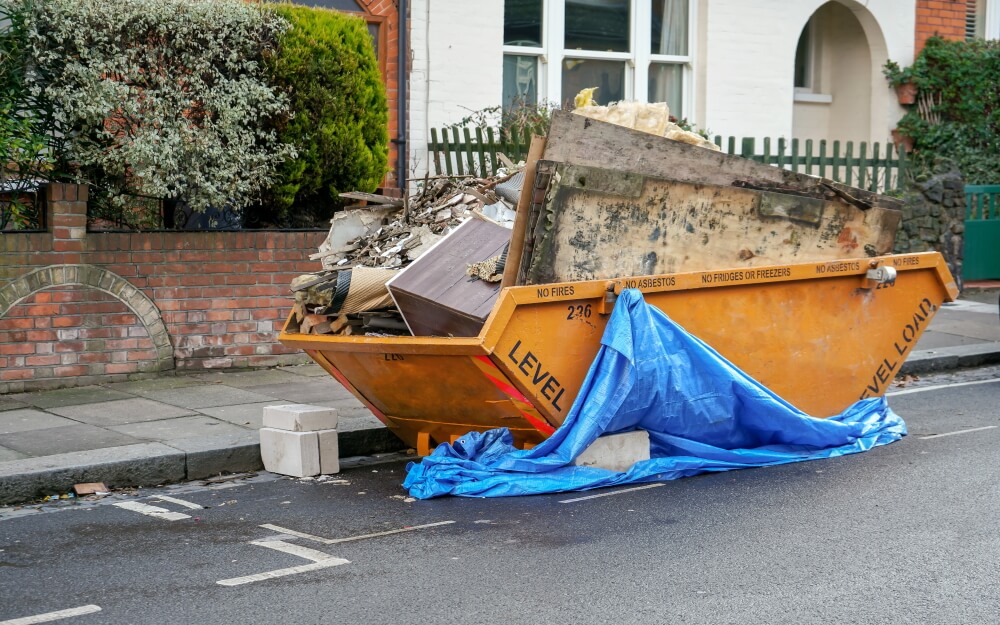Should I Renovate my House Before Selling?
When selling a property in need of improvement, should I spend money on refurbishment works? Or leave the property as is, and let the new owner take care of improvements?
For your peace of mind we are a member of The Property Ombudsman.
Call 0800 862 0206 for your FREE sale price estimate
Should I Carry Out Improvement Works Before Selling my House? A guide for property owners.
We’re often asked by property owners whether it’s a good idea to carry out improvement work to their property before selling? For run-down houses, probate properties and ex-buy to let investments that have seen better days, is it worth spending time and money carrying out improvement works, or even making the property look presentable to prospective buyers? The sellers consideration is not so much about adding value (profit), but whether improvements will increase the saleability to ensure a timely and fair sale.
And when it comes to furniture and personal belongings, what’s the legal position? The expectation being that it’s only the property being sold, not the contents. The short answer is that you can sell with all contents remaining, even if it’s junk. This matter is elaborated upon in more detail below: The Law – What do I need to do before selling?
When selling a property in need of improvement, your decision on whether to improve the property or not may depend on these considerations; the minimum sale price you need to be sure of achieving, the time and resources available to carry out improvement work, the audience of buyers you’re choosing to target (which will depend on the level of work required) and the method of sale you choose (auction or estate agent).
Before setting off on a refurbishment project before the sale, it may be worthwhile reflecting on these 5 points:
- 1) Don't underestimate the cost of work
- 2) Consider selling in current state
- 3) Compare different methods of sale
- 4) Don't down value your property
- 5) Think about your own personal priorities
When selling a house needing renovation, the best method of sale is by auction. A property finds it top price at auction through the process of competitive and transparent bidding. The rules of an auction sale mean that a prospective buyer cannot reduce their offer by haggling on the cost of renovations works etc.
If you ask an estate agent whether it’s a good idea to carry out improvement work before selling, most of the time they’ll recommend leaving an unmodernised property as it is, without carrying out improvement work, allowing the new owner to carry improvements to their own taste and specification.
And we would agree with that approach, but only in a booming market; in a strong sellers market (where demand outstrips supply) buyers are less inclined to use the property’s faults as a way negotiate the price down. But in a buyer’s market, or even a stable market (when there is equal or more supply than demand) we think that can be poor advice (for an estate agency sale). It can motivated by the estate agent’s incentive to win your instruction as soon as possible, and might not be in the best interest of the seller. The pitfalls of selling a property in need of improvement through an estate agent are elaborated upon below.
Auction buyers LOVE properties in need of modernisation. And auctioneers love them too! Houses and flats with potential for improvement are in big demand from builders, developers, amateur diyer’s and owner occupiers who are happy to take on a project.
Whilst these “project hunter” buyers do also purchase properties through estate agents, the rules of an auction sale mean they must compete to buy the property at auction; the only way a buyer can secure the property for themselves at auction is to be the highest bidder. The true value of the property is determined at auction through the process of transparent and competitive bidding.
With an auction sale the direction of negotiation is only upwards. But with an estate agency sale the direction of negotiation is almost always downwards – and that’s especially the case for properties in need of improvement, where the one and only buyer selected by the estate agent (or the seller) has the opportunity to continually reduce their offer. With an estate agency sale, the buyer has exclusivity to negotiate, whilst any other prospective buyer who’s interested in making an offer is turned away and told the property is sold – when of course it’s not actually sold until exchange of contracts!
We always recommend selling a property in need of modernisation at auction, for a fair and transparent sale. As long as you’re happy with the auctioneers suggested reserve price as a bottom line, you can be assured of achieving a price that’s fair, letting the market decide what the property is worth.
One of the reasons why savvy property investors decide to flip their own properties at auction (rather than carry out the work themselves) is because buyers sometimes underestimate the cost of work, so bidding more than perhaps they should. How many times have you heard of a project running overschedule and overbudget? That’s not the case with an estate agency sale where buyers have the opportunity to dwell on their prospective project, realising they’ve bitten off more than they can chew. The buyer will either reduce their offer or get cold feet and back out of the sale completely, leaving the seller back at square one, often many months after the offer was initially agreed.
We can’t stress the importance of this enough; you don’t have to carry out any work whatsoever, and it’s not expected for an auction sale. Some vendors are unable to attend the property because they live a long distance away or will find organising the work a physical or emotional drain – if a loved one was previously living at the property for example.
We’ve seen plenty of properties that are cluttered from floor to ceiling successfully sell for very good prices at auction. You really don’t need to do anything, but in our experience some vendors just feel the need to do something to help. And for those people, here is some guidance on low cost improvement work to carry out before selling a property at auction:
1. Keep the garden tidy. A cost-effective way to improve the external appearance of a property is to keep the garden looking tidy. It’s a welcoming first impression for prospective buyers. Cutting back hedges and keeping the lawn down will also keep the neighbours from complaining and help to make vacant properties appear occupied, so helping from a security aspect too. We recommend prioritising the front garden. And if the back garden is very overgrown, just tackle part of it, ideally areas closest to the property so prospective buyers can inspect the rear of the building if required.
2. Remove rubbish and clutter. Inherited houses and ex-buy to let properties are often left with piles of clutter and furniture no longer fit for purpose. Most auction buyers won’t mind clearing away rubbish, it will go in a skip along with the other fixtures and fittings before their refurbishment work begins. But if you have the time and resources, clearing away junk, or at least moving it all into one room will allow prospective buyers to better appreciate the potential of the property, giving them the opportunity to thoroughly inspect the property.

3. Let the light in. The internal appearance of some of the long-term-empty properties we’ve inspected can be instantly improved just by opening the curtains! And even better, removing the curtains (and net curtains) if they are old and dirty. Natural sunlight gives an instant boost, lifting the mood, especially on a bright sunny day. It also allows prospective buyers to see from the inside out, appreciating the view of the street and garden. Natural light has a sanitising effect too, naturally disinfecting and helping to eliminate odours.
4. Access all areas. This might seem obvious, but it’s surprising how many times we hear of the keys for back doors and garages not being available on viewing days! Even if you need to bust open a lock or hire a locksmith, it’s well worth going to the effort of allowing all areas of a property to be accessed by prospective buyers. The majority of auction buyers are cash buyers, so won’t need a full inspection / survey like a mortgage buyer would. And even cash buyers will feel more comfortable (and bid higher) if they’ve been given the opportunity to inspect all areas.
5. Quell the smell. Removing smells can be tricky. If the occupier was a heavy smoker or waste has been rotting away for a long time, the smell spreads throughout the property. Most buyers will not be too bothered about smells, but a really bad smell can be off-putting and at the very least cause prospective buyers to terminate their viewing early if they can’t stand the stink! A quick fix is to buy a twelve pack of Neutradol Gel odour destroyers and distribute around the property. It will cost less than £20 and is money well spent.
6. Clean the bathroom and kitchen. If you feel the urge to clean, we suggest focusing on the bathroom and kitchen. These are the two areas of a house that can make a big difference. People associate bathrooms and kitchens with hygiene and cleanliness, and even if the plumbing and appliances are not functioning (and will likely be replaced by the new owner) there will be some prospective buyers who find the sight and smell of dirty bathroom a bit disturbing! If a property appears suitable for human habitation then it will help broaden the audience of buyers to include a wider set of owner-occupier buyers, even if they have no intention of immediately living at the property. And it’s that audience of buyers who will pay the top price, dreaming of the property as their new home, sometimes bidding more than they should!
7. Address safety concerns. Trade buyers (builders and developers) won’t be too worried about the dangers of shattered glass on the ground, or electrical wires hanging from the ceiling, but for peace of mind it can be a worthwhile fixing these things before prospective buyers view a property. And if you’re fixing electrical issues, we do of course strongly recommend using an accredited electrician – don’t put yourself in any danger. A quick fix to any electrical safety issues is to turn the electricity off at the mains. For some unoccupied insurance policies that will be a requirement anyway, along with draining down the water system and turning the gas off. View more tips on selling poor condition / dilapidated house.
8. Keep the property secure. To prevent against the need to carry out any further work, keep the property secure. Make the property appear to be occupied by regularly removing post and flyers stuffed through the letter box. To reduce the build-up of junk mail it’s worthwhile fixing a sign on the letterbox stating “no flyers or junk mail”. And also consider using the Royal Mail postal redirect service.
9. Depersonalise the property. This might sound a bit harsh, particularly if you are selling a probate property. But it can help the sale if all personal belongings are cleared out before viewings start, particularly if the audience of buyers include owner-occupier buyers. you want the buyer to be thinking about the future potential
10. Be honest. Resist the temptation to paint over areas of damp or to fill cracks in walls. Prospective buyers will smell a rat if they spot fresh paint, they’ll wonder what’s being hidden and what else the vendor might be concealing. Losing the buyers trust definitely won’t help with the sale. A buyer would rather see a genuine sale with all the issues, rather than second guessing the sellers motives. And that same authenticity goes for the auction legal pack too; it’s best to disclose all the facts to gain the buyers trust and let them bid with confidence on auction day.
The list above offers some suggestions on low cost improvements to make before selling a property at auction, but it’s really important to point out there’s no requirement to make any improvements when selling a house, particularly at auction. Auction attracts a different type of buyer compared to an estate agency sale,
The short answer is yes, you probably should carry out more comprehensive improvement work if entering into negotiations through an estate agency sale or direct to a private property buyer.
If you choose to sell a property in need of improvement using an estate agent, it may be a good idea to carry out repairs and improvement work before the sale. With an estate agency sale, the prospective buyer has the opportunity to haggle the price down, continually, even on the day before exchange of contracts. And properties in need of repair suffer this downward negotiation more than any other type of property. The price drop can come at many stages, for example; after the surveyor has inspected the property, then the builder, then the roofer, or even just because the buyer can! Due to the inefficient nature of estate agency sales the buyer is in a position* to negotiate the price down, and they often take advantage of that position to unfairly reduce the price, sometimes months after their initial offer was made. Even a genuine buyer who made an honest and reasonable offer might back out of the sale when they’ve fully considered the level of work they’ll be taking on. Again, this can be and usually will be, many months after you accepted their original offer.
*with a private treaty (estate agency) sale the selected buyer is in a very advantageous position; they are the one and only selected buyer, with no other buyers to compete against. It’s called a private treaty sale for a good reason!
Whilst an estate agent’s job is to look after the seller, in reality their main interest is earning a commission fee from the sale. And with so much influence over the sale an estate agent will usually recommend to the seller that they accept the reduced offer, just to get the deal over the line. The suggestion will usually be worded something along the lines of: “we’ve been trying to sell for along time and it looks like this the best price you’re going to get considering the condition of the property”. And after many months of waiting, you can’t blame a seller for conceding on price and letting the property go!
They most important thing to remember when selling a property is to fully disclose any of the issues you are aware of. That doesn’t mean you have to commission a building survey to find out what problems exist, but you must disclose anything you already know about. And you must not make any misleading omissions.
For example, if you know of any physical issues such as subsidence or structural defects, pest control issues, invasive plants such as Japanese Knotweed, you must disclose these details. Environmental issues such as flight paths in the area, problem neighbours and high crime rates need to be accurately disclosed too. And even emotional issues such as violent deaths or suicides in the property need to be disclosed.
In the not too distant past it might have been okay to sell on the basis of “sold as seen” and let the buyer beware ‘caveat emptor’. But not now! It’s important to understand your legal responsibilities as a seller to avoid any risk of being sued later down the line. And it’s not okay to just to verbally mention these issues to the buyer, they must be stated in writing in the Property Information Form (TA6) that your solicitor will ask you to complete.
The other “property questionnaire” form your solicitor will ask you to complete is the the Fixtures and Fittings (or Fitting and Content) Form (TA10). If you’re leaving furniture, fridges, curtains, sofas, mattresses and TV’s these will not be be included in the form. You should also make sure that any waste/rubbish left to remain at the property is included in the form. If you’ve not been able to inspect the property and are not sure what contents there are, then you should make sure your solicitor is aware of this so they can make the buyer aware.
If you are prepared to sell for the auctioneers suggested reserve price (as a minimum sale price) then we usually recommend leaving the property as is. There is a good chance you will achieve more than the reserve price through the process of competitive bidding on auction day. And you will save yourself from the time and money of carrying out the work.
Looking to sell your house or flat? Request a free auction sale estimate and or call our team on 0800 862 0206 to talk about the best options for you.
Carry Out Improvement Works Before Selling ?
Should I carry out improvement works before selling my property at auction? This article offers some guidance to property owners.
Find an auctioneer
Need help choosing a local property auctioneer? Call 0800 862 0206 or send us an enquiry online.










